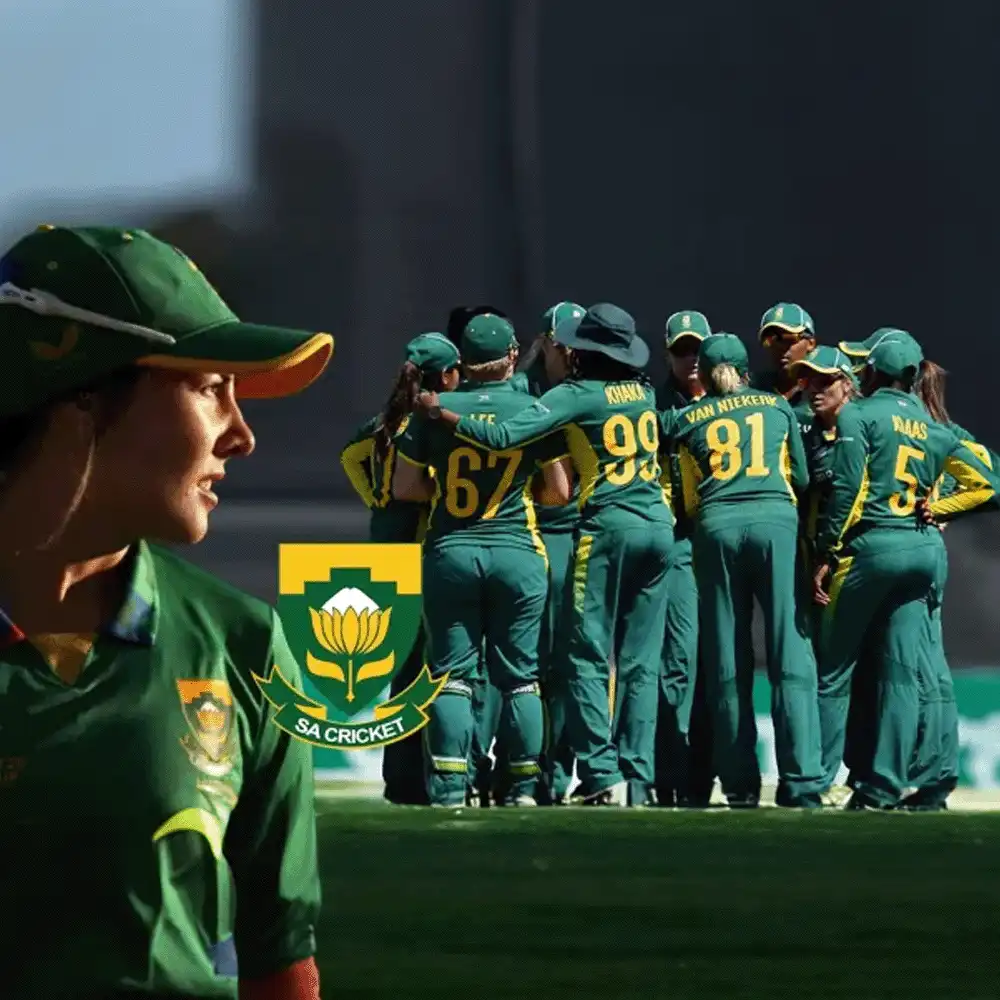

Equal Match Fees for South African Cricket
Cricket South Africa (CSA) has made a significant stride by declaring equal international match fees for both their men’s and women’s players. This move aligns them with New Zealand and India, who have already implemented gender parity in payment.
The groundbreaking decision coincides with CSA’s introduction of a six-team professional domestic structure for women cricketers. This initiative is a continuation of legacy projects that stem from the Women’s T20 World Cup hosted successfully in February. The revised match fees will take effect next month, coinciding with the upcoming tour of South Africa’s women’s team to Pakistan.
The new domestic structure is modeled after the current 16-team, two-tier format. This format consists of a top six and a bottom ten teams, with the latter divided into two groups of five each. This system features a promotion and relegation mechanism. The existing setup remains intact, but a significant change lies in the top-six teams now having the ability to contract 11 players. This is an increase from the previous six players.
The contracted players will receive compensation comparable to the highest-paid male cricketers in Division 2. Additionally, these teams will be empowered to employ a dedicated coaching staff on a full-time basis.
Cricket South Africa (CSA) will financially support four backroom staff positions for each of the six teams. Notably, two of these positions must be filled by female staff members, highlighting a commitment to gender diversity and representation.

A Showcase of Talent: Rohit’s Standout Performances
The top six teams within this structure will engage in both a 50-over and a 20-over competition. Notably, the 20-over matches are expected to take place concurrently with the men’s competition to enhance their visibility. This strategic alignment aims to attract more attention to women’s cricket.
This progressive step makes cricket the first team sport in South Africa to elevate the women’s game to a professional level at the domestic tier. This move has garnered commendation from the country’s sports minister, Zizi Kodwa.
“What we are celebrating today is not about monetary value but about leadership and political will,” Kodwa said at the unveiling of the six teams in Pretoria. “In the first week of our appointment, we met with the top five [sports] federations in the country, and we stressed this point. You seem to be the only federation who understood what we said. How I wish others are listening as we speak now.”
In the upcoming 2023-24 season, the top six teams in the new domestic structure will be Titans, Lions, Dolphins, Western Province, Free State, and Garden Route Badgers. Notably, four out of these six teams—Titans, Lions, Dolphins, and Western Province—also possess men’s teams that compete in South Africa’s domestic first division. On the other hand, Free State and Garden Route Badgers are exclusively top-tier women’s teams.
This is crucial for the Free State, situated in Bloemfontein. They’re in a vital central area but have recently lost prominence in cricket, lacking a men’s top division team or SA20 franchise locally. Garden Route Badgers, positioned in Oudtshoorn, an inland town known for ostrich farming in the Western Cape, are considering relocating to a stadium in the coastal town of George.
While the primary benefits of the new initiative will go to the top six teams, the bottom ten teams will also experience changes, particularly in the form of increased matches. In past seasons, these teams only competed against their four group peers. However, this season, they’ll engage in cross-pool matches as well. The logistics are still being worked out, but it’s likely to involve a tournament-style setup, with teams stationed at a single venue for a few weeks.
Both divisions’ players will gain exposure to high-level international coaching and talent. CSA plans to hold camps this season for women’s teams alongside SA20 squads. In the following season, women’s exhibition matches in SA20 are on the agenda, and the subsequent season aims to introduce a women’s T20 franchise league.
The expansion in the women’s game is expected to cost CSA R40 million (about US$2.1 million) over three years, partially supported by the government. The Department of Sports, Arts and Culture has committed R15 million (US$800,000) to CSA for the same period.

Latest News
Equal Match Fees for South African Cricket
Sri Lanka’s Netball Tower Tharjini Sivalingam Retires
Arsenal Downs Palace to Extend Perfect Start
Rauf Helps Pakistan Win First ODI Against Afghanistan
Ebadot Out of Asia Cup, Sakib To Replace Him
– Advertisement –
– Advertisement –
– Advertisement –
– Advertisement –
– Advertisement –